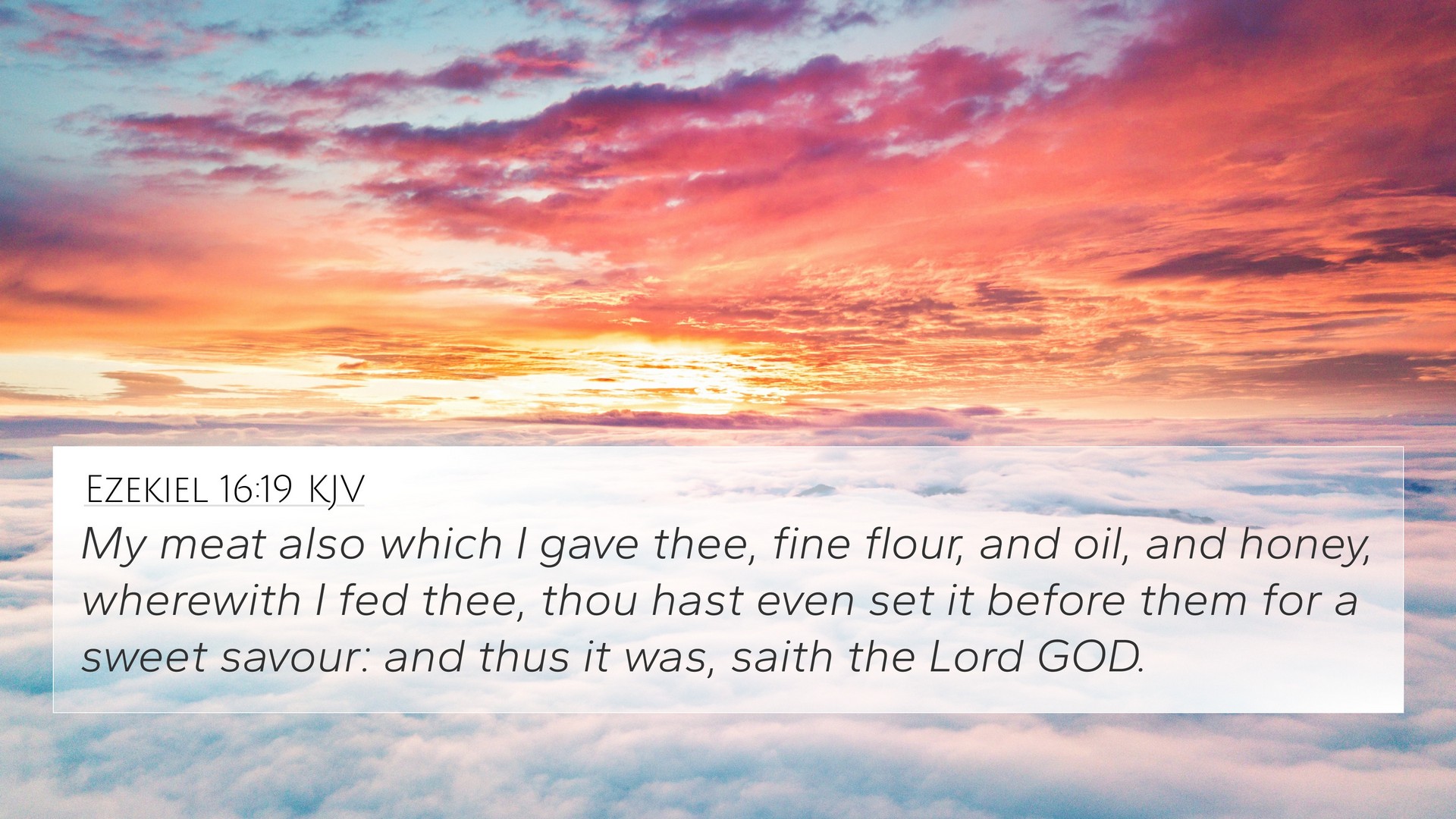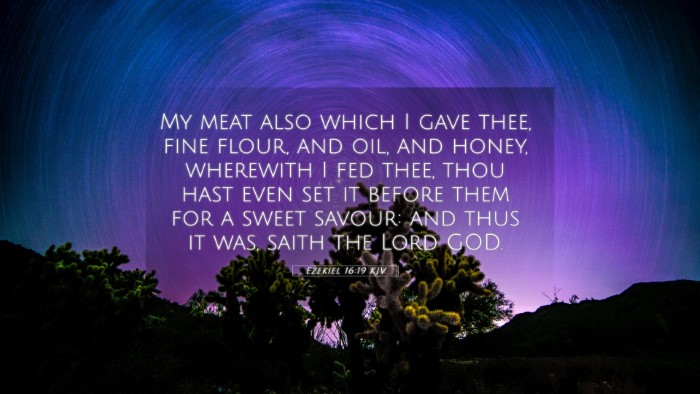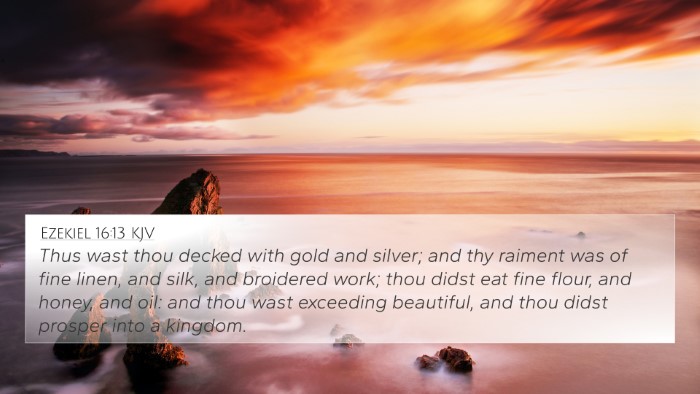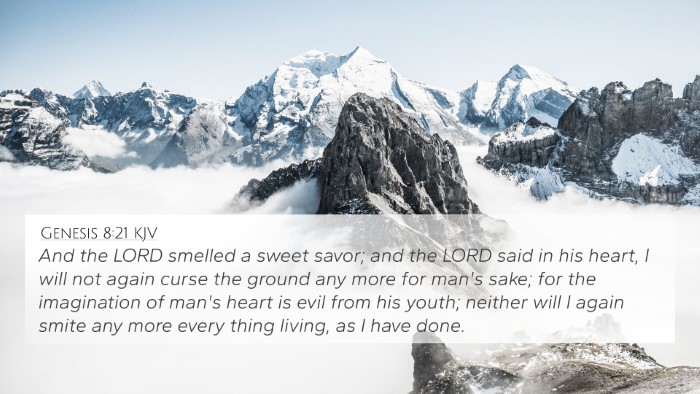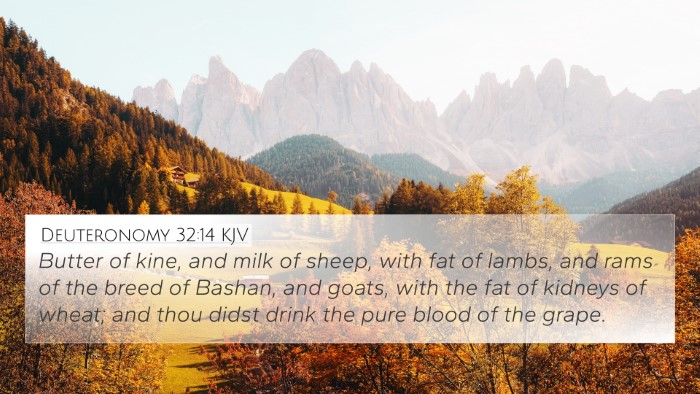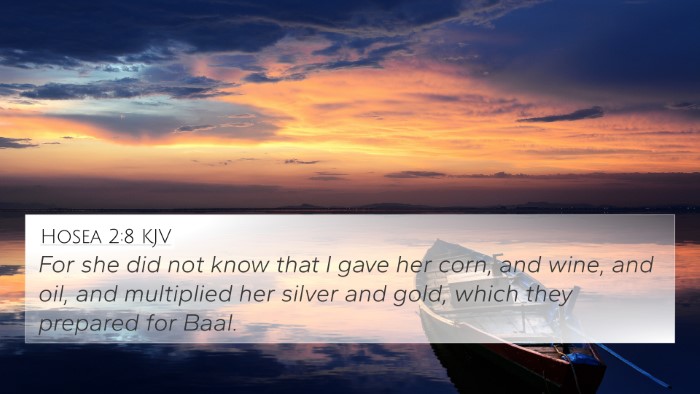Ezekiel 16:19 - Summary and Interpretation
Verse Text: "And my meat which I gave thee, fine flour, and oil, and honey, wherewith I fed thee, thou hast even set it before them for a sweet savour: and thus it was, saith the Lord God."
Overview of Ezekiel 16
This chapter serves as a powerful allegory depicting the unfaithfulness of Jerusalem to God. It presents a vivid picture of God's covenant relationship with His people, illustrated through the imagery of a bride. Ezekiel 16 emphasizes both the blessings bestowed upon Israel by God and their resulting ingratitude and idolatry.
Commentary Insights
- Matthew Henry: Henry notes that this verse illustrates God's provision and care for Israel. The fine flour, oil, and honey are symbolic of the richness of God's blessings. In expressing His frustration, God highlights how the people took these gifts and offered them to idols, betraying their covenant with Him.
- Albert Barnes: Barnes asserts that the verse reflects the ingratitude of Jerusalem. The "fine flour" and "honey" symbolize the abundant blessings God provided. By offering these to others, Jerusalem showed a gross disregard for their relationship with God, illustrating unfaithfulness.
- Adam Clarke: Clarke emphasizes the severity of Israel's actions compared to the goodness of God’s gifts. The act of setting food provided by God before foreign idols was seen as an act of betrayal. This verse connects the means of sustenance with spiritual corruption.
Theological Implications
The verse is a reminder of the dangers of ingratitude and idolatry. It serves as a warning against misusing God’s blessings for purposes contrary to His will. The imagery reinforces the concept of divine love being discarded for fleeting, earthly desires.
Bible Verse Cross-References
- Ezekiel 34:29: "And I will raise up for them a plant of renown, and they shall be no more consumed with hunger in the land."
- Deuteronomy 8:10: "When thou hast eaten and art full, then thou shalt bless the Lord thy God for the good land which he hath given thee."
- James 1:17: "Every good gift and every perfect gift is from above, and cometh down from the Father of lights."
- Romans 1:21: "Because that, when they knew God, they glorified him not as God, neither were thankful; but became vain in their imaginations."
- Isaiah 1:11: "To what purpose is the multitude of your sacrifices unto me? saith the Lord."
- Luke 15:17: "And when he came to himself, he said, How many hired servants of my father’s have bread enough and to spare, and I perish with hunger!"
- Hosea 2:8: "For she did not know that I gave her corn, and wine, and oil, and multiplied her silver and gold, which they prepared for Baal."
Thematic Bible Verse Connections
The themes of divine provision and human unfaithfulness appear throughout the scriptures. For example:
- God's provision in Psalm 23:1: "The Lord is my shepherd; I shall not want."
- Warnings against idolatry in 1 John 5:21: "Little children, keep yourselves from idols."
- The danger of forgetting God’s blessings in Proverbs 30:8-9: "Remove far from me vanity and lies; give me neither poverty nor riches."
Concluding Thoughts
Ezekiel 16:19 serves as a striking reminder of the consequences of unfaithfulness to God amidst His abundant blessings. The connections between Bible verses presented here reinforce the necessity of gratitude and faithfulness throughout the believer's life. As we study scripture, using tools for Bible cross-referencing can deepen our understanding of these themes and the inter-Biblical dialogue across both the Old and New Testaments.
